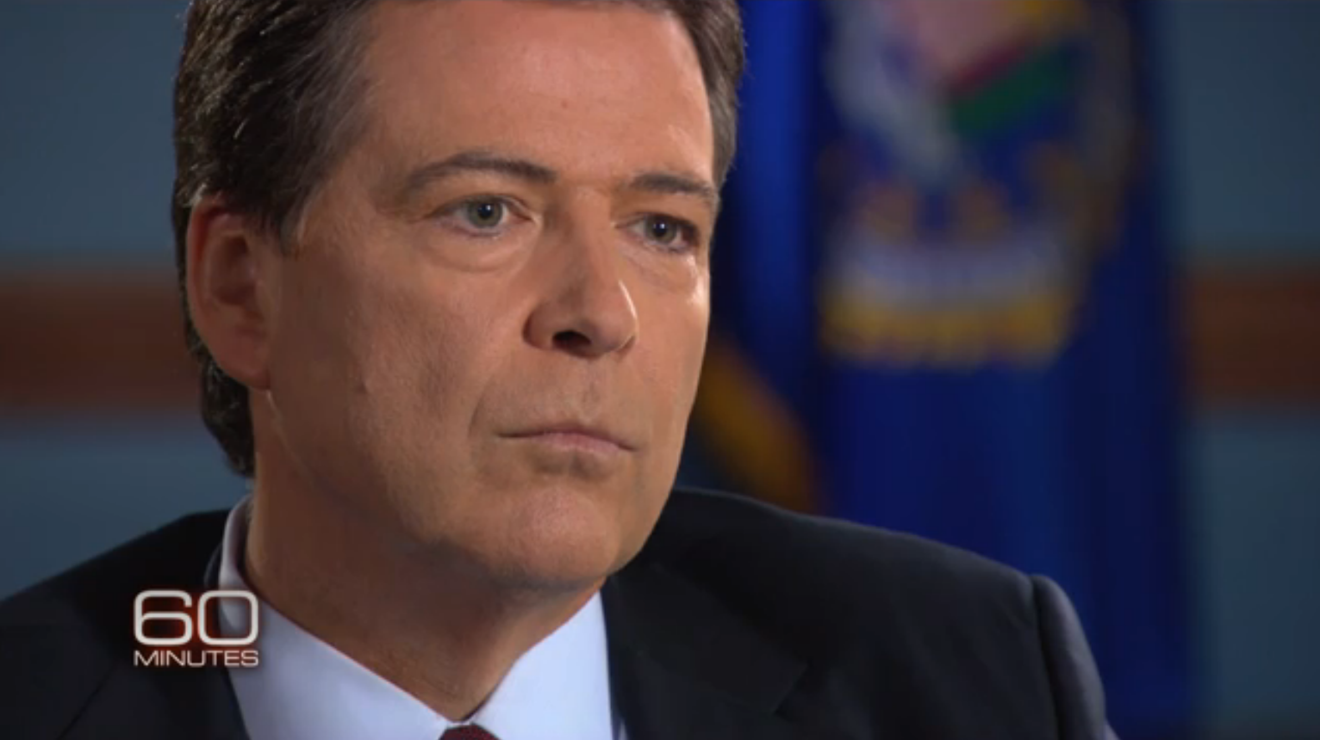James Comey, director of the U.S. Federal Bureau of Investigation, has once again slammed Apple's iPhone and devices running Android that can hold secure, encrypted data that is inaccessible by law enforcement, saying that such capabilities allow users to "place themselves beyond the law."
Comey's remarks came during an interview with 60 Minutes, during which he said he believes unbreakable encryption of user data has "gone too far." He said he's concerned that even with a legal court order, the information secured on a smartphone could be kept secret, even in the cases of kidnapping, child exploitation or terrorism.
"The notion that we would market devices that would allow someone to place themselves beyond the law troubles me a lot," Comey said. "As a country, I don't know why we would want to put people beyond the law. That is, sell cars with trunks that couldn't ever be opened by law enforcement with a court order, or sell an apartment that could never be entered even by law enforcement. Would you want to live in that neighborhood?"
The comments are similar to those Comey made in a separate interview last month, when he said he believes privacy features in both Apple's iOS and Google's Android allow users to put themselves "above the law." The FBI director has said that he is "very concerned" that secure, unbreakable systems limit or prohibit lawful government access.
But Comey did stress on 60 Minutes that he believes there should be restrictions, review and oversight when it comes to law enforcement. He feels so strongly about the issue that in 2004, as deputy attorney general, he fought with President George W. Bush on warrantless wiretapping.
Comey indicated he would resign if the Bush administration reauthorized its secret surveillance program, and the president was persuaded. As a result, the program was reauthorized in a modified form that Comey said conformed to the law.
The FBI director pledged that his organization does not do any electronic surveillance without a court order. A federal judge must agree that the person being spied upon is likely a terrorist, an agent of foreign power, or a serious criminal.
"It is an extremely burdensome process," he said. "And I like it that way."
New security features in Apple's iOS 8 platform make it technically impossible for the company to decrypt on-device data, even if law enforcement agencies were to provide the proper warrants. If an iPhone has been locked with a secure passcode, Apple has no method of bypassing that code.
The secure system is based on encryption keys, which are no longer stored by Apple off-site, meaning the only way to access an iPhone's contacts, photos, messages and more is by keying in the appropriate lock code. It should be noted that any information sent to iCloud or other servers are fair game for government data requests.
 Neil Hughes
Neil Hughes








-m.jpg)






 Christine McKee
Christine McKee
 Marko Zivkovic
Marko Zivkovic
 Mike Wuerthele
Mike Wuerthele

 Amber Neely
Amber Neely
 Sponsored Content
Sponsored Content
 Wesley Hilliard
Wesley Hilliard










188 Comments
They could change the law.
They could change the law.
exactly, if they want to be able to access the data they need to debate it with the public and make a law. Wanting backdoors and
Where did I put that tiny violin?
James Comey is an ass.
The logical conclusion of his argument is to make it mandatory for everyone to wear microphones and video cameras 24 hours a day wherever they are, so that the government can check that they're not terrorists or other criminals.
I wouldn't be surprised to see him complaining that the government has no access to our thoughts.
Hello 1984.
The USA has forgotten what liberty is.
I was only reading this a little while ago... [URL=http://www.theregister.co.uk/2014/10/13/law_enforcement_only_blame_themselves_increasing_smartphone_crypto/]http://www.theregister.co.uk/2014/10/13/law_enforcement_only_blame_themselves_increasing_smartphone_crypto/[/URL]